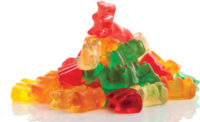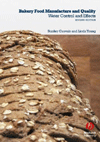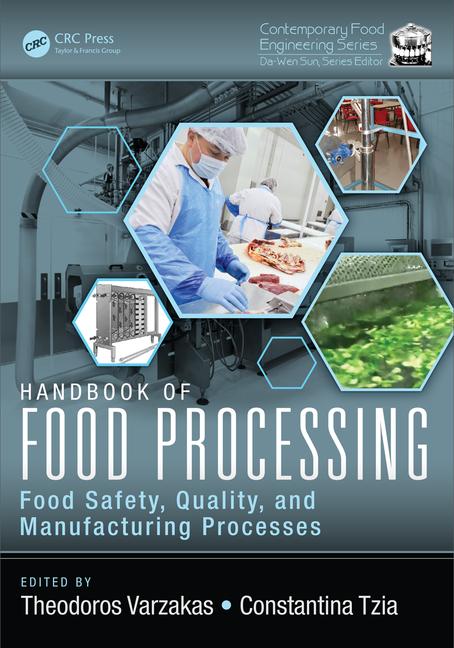The Not-So-Private Quality Push
By Renee Covino and Mary Ellen Kuhn
Confectioner asked exhibitors at the recent PLMA show to discuss product upgrade strategies.
No longer limited to middle-income and blue-collar households, private label goods are “in the pantry of virtually all U.S. homes,” according to Todd Hale, senior vice president, consumer and shopper insights for ACNielsen.
Speaking at the Private Label Manufacturers
Association (PLMA) 2006 trade show in November, Hale explained how retail
brands have experienced strong growth among the affluent in recent years
and are therefore, “in a position to compete on quality.” Hale
also believes there is a private label “opportunity to reduce the
price gap vs. branded” items.
Confectioner queried
manufacturers at the show on these higher quality/price issues.
How is your company maintaining or upping the quality
and/or price of its private label candy and snack items?
Dan Hastings, Mid-West RegionalSales Manager
R.M. Palmer & Company
“No one does packaging better than R.M. Palmer for the seasons. For seasons, we are a national brand. We add about five new items a season. Consumers have always known us for our hollow Easter bunnies — we are the dominant player of those — but especially lately, we’ve added so much more variety and color for the seasons. For this Easter we’ll have a Spiderman Hollow Egg Head and a Bunny Bigfoot, to name two.
“No one does packaging better than R.M. Palmer for the seasons. For seasons, we are a national brand. We add about five new items a season. Consumers have always known us for our hollow Easter bunnies — we are the dominant player of those — but especially lately, we’ve added so much more variety and color for the seasons. For this Easter we’ll have a Spiderman Hollow Egg Head and a Bunny Bigfoot, to name two.
“Also in line with higher quality, there is a
big push for retailers to get higher rings in the category. We’re
getting more requests for items in the $2.99-$3.99 range. A lot of
retailers are getting away from the dollar rings — they’re not
for everybody anymore.”
Tim Kleptz, President
Purity Foods, Inc.
“We’re all me-too manufacturers so we have to emulate the national brands’ quality — or better — as quickly and often as possible at a value price, in our case, a buck. But with commodity prices going through the roof, that is a challenge. In many cases, we’re looking to decrease the fill weight and keep the price the same.
“We’re all me-too manufacturers so we have to emulate the national brands’ quality — or better — as quickly and often as possible at a value price, in our case, a buck. But with commodity prices going through the roof, that is a challenge. In many cases, we’re looking to decrease the fill weight and keep the price the same.
“Lately, consumers want smaller packaging, more
portion control, so if we can downsize the package and increase the quality
— I’m all over that. It’s a win/win.”
Karin Vollrath, Sales and Marketing Manager
Gimbal’s Fine Candies
“When we develop new candy flavors like our Red Delicious, we source multiple flavors from multiple houses. Many times we use a combination of flavors — top notes and back notes — it’s very complex to duplicate the flavor of a living organism. There’s a different taste in the center than there is closer to the rind. We’re trying to capture all that. There are many directions you can go with a fruit flavor like apple. We went for the realistic flavor, which is perhaps hardest to capture.”
“When we develop new candy flavors like our Red Delicious, we source multiple flavors from multiple houses. Many times we use a combination of flavors — top notes and back notes — it’s very complex to duplicate the flavor of a living organism. There’s a different taste in the center than there is closer to the rind. We’re trying to capture all that. There are many directions you can go with a fruit flavor like apple. We went for the realistic flavor, which is perhaps hardest to capture.”
Jeff Trimmer, Sales Manager
The Warrell Corporation
“As a private label manufacturer and contract manufacturer, we’ve always emphasized quality with high-end raw materials, centers, coatings and packaging — quality has always been standard for us. But for the last five to 10 years, we’ve really grown the private label contract aspect of our business, which means that while we’re growing our business, we’re also growing retailers’ brands.
“As a private label manufacturer and contract manufacturer, we’ve always emphasized quality with high-end raw materials, centers, coatings and packaging — quality has always been standard for us. But for the last five to 10 years, we’ve really grown the private label contract aspect of our business, which means that while we’re growing our business, we’re also growing retailers’ brands.
“A goal right now is to more deeply develop
high-end candies for the warehouse club class of trade. There’s much
more retail demand for high-end snacks, and it’s starting with the
supermarkets.”
Roger McEldowney, President
Mayfair Sales
“We don’t call it private label, we call it private brands. To me, it’s about creating more value and therefore more expensive products. We try to do that with quality control. We’re also trying to do that with packaging.”
“We don’t call it private label, we call it private brands. To me, it’s about creating more value and therefore more expensive products. We try to do that with quality control. We’re also trying to do that with packaging.”
Gary Schlatter, CEO
OraLabs
“It seems like more and more retailers are trying to upscale their national brands. For example, you’ve got to have flavor profiles that match the national brand. It’s more than just throwing in some peppermint. You have to work with the high-end flavor houses and combine flavors. People will try store brands because they like the price, but if they don’t like the flavor, it’s a one-time shot. It has got to be sustainable. For that reason, we continually tweak product quality for our customers.”
“It seems like more and more retailers are trying to upscale their national brands. For example, you’ve got to have flavor profiles that match the national brand. It’s more than just throwing in some peppermint. You have to work with the high-end flavor houses and combine flavors. People will try store brands because they like the price, but if they don’t like the flavor, it’s a one-time shot. It has got to be sustainable. For that reason, we continually tweak product quality for our customers.”
Jesper Kolind, Partner
Back II Basics
“There are two aspects to it: Is it a consistent quality and is it a good quality? Among the ways in which we ensure that is by adhering to a variety of certification standards.
“There are two aspects to it: Is it a consistent quality and is it a good quality? Among the ways in which we ensure that is by adhering to a variety of certification standards.
“The other element is ‘high or low
quality.’ The way we work with this is that we arrange consumer
panels where we test our private labels against benchmark products on
different criteria.”
Dale Acton, Director of Sales
BestSweet Inc.
Best Sweet has worked with many of its private-label throat lozenge clients to create vibrant packaging designed to be every bit as attention-getting as the national brands. Acton reports that retailers are increasingly allocating prime, endcap space for display shippers and as a result, there is a demand for higher-quality display shippers.
Best Sweet has worked with many of its private-label throat lozenge clients to create vibrant packaging designed to be every bit as attention-getting as the national brands. Acton reports that retailers are increasingly allocating prime, endcap space for display shippers and as a result, there is a demand for higher-quality display shippers.
In addition, the BestSweet sales executive believes
that some retailers have missed opportunities to increase prices and boost
margins on their strongest private label brands. “I think there is
room [for retail price increases],” says Acton. “They are
leaving some pennies on the peg.”
Kelly White, Vice President of Marketing
Blueberry Hill Foods
“Blueberry Hill Foods strives to be best in class in everything we do for everyday staple and seasonal candies. Our products are equal to or better than the national brand and offer additional consumer benefits.
“Blueberry Hill Foods strives to be best in class in everything we do for everyday staple and seasonal candies. Our products are equal to or better than the national brand and offer additional consumer benefits.
“In addition, we offer private label retailers
new product varieties, i.e. filled hard candies, vitamin-fortified
products, and so on, and innovative packaging such as resealable, stand-up
gusseted bags and tie-top bags.”
Public Stats on Private Label
$68 billion+ in sales
19 product categories exceed $1 billion
In the pantry of virtually all U.S. homes
A typical cupboard boasts 20+ private label
products
Half of consumers would buy more if there was
a greater private label assortment
Source: ACNielsen/U.S. Retailing Trends, November,
2006







